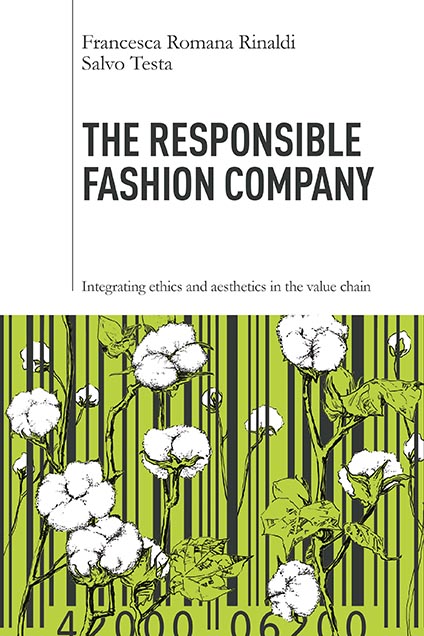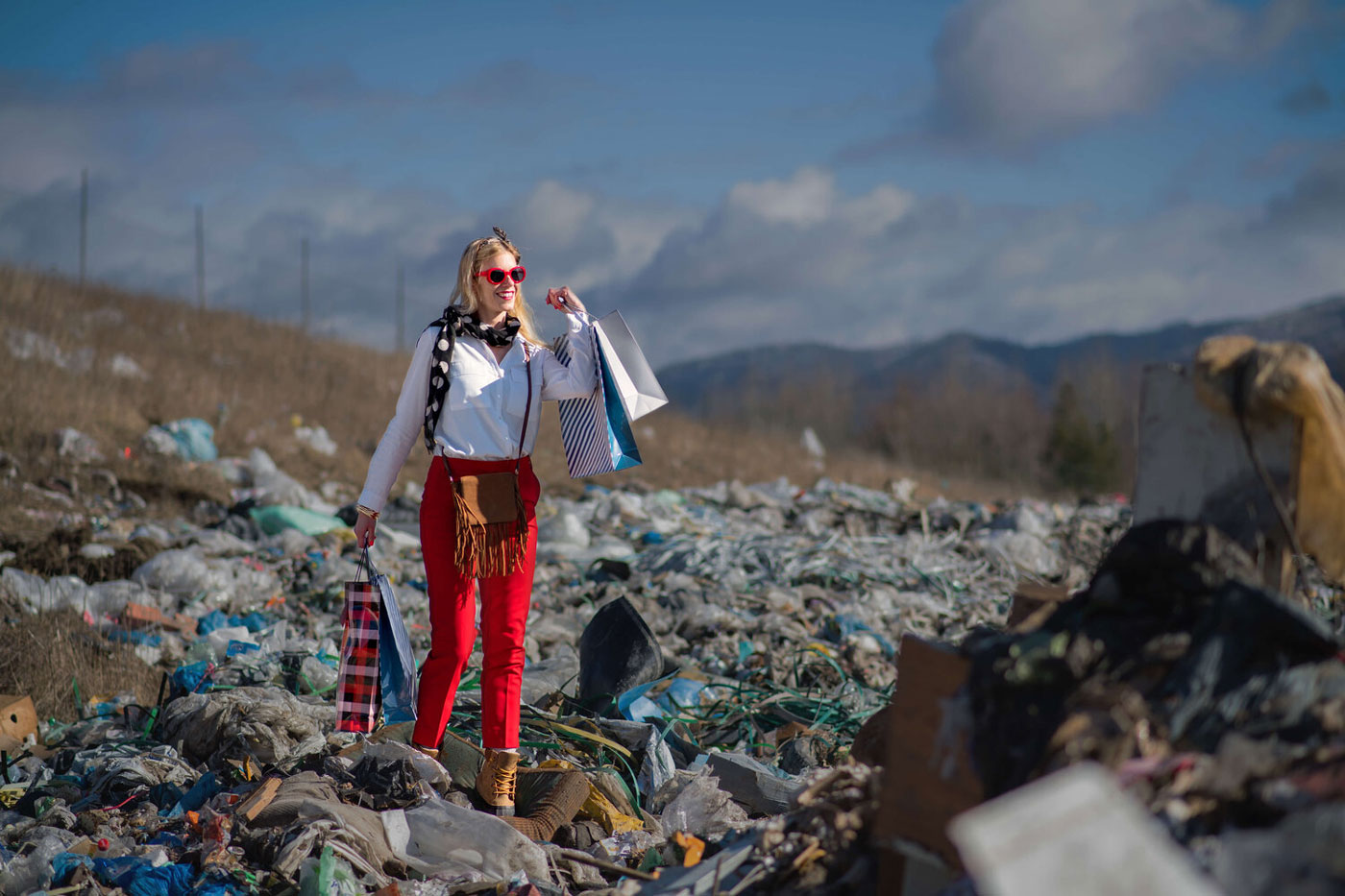MILAN, ItalyThe so-called era of ‘liquid modernity’ is now embracing a new era of complexity, uncertainty and systematic doubt. We are at the point of an economic revolution, where the paradigms and business models of consumption are changing and the neo-consumerbetter described as a ‘consum-actor’ or ‘consum-author’is both a user and an active part of the complex consumption dynamics. This is positively contributing to rethinking, rebuilding and redesigning the rules of the market. Furthermore, a new slow fashion movement has started an era of critical and participatory consumption characterised by a strong new opposition between ‘to be’ and ‘to use’.
The Responsible Fashion Company (the new Greenleaf Publishing title by Francesca Romana Rinaldi; co-author Salvo Testa) presents an exploratory journey into the relationship between fashion and corporate responsibility offering challenges and opportunities of sustainability in the global fashion industry.

About the author
Francesca Romana Rinaldi is Professor of business strategy in creative and fashion management at Bocconi University in Milan. She is a faculty member of the Luxury & Fashion Knowledge of Management and the Master in Fashion, Experience & Design Management.
“I graduated from Bocconi University in business management with a focus on internationalisation strategies. Since then, I have been focusing my didactic, research and consulting activities on the fashion industry,” Francesca explains. “I have been working for Bocconi University and SDA Bocconi for 8 years now and last year, I was honoured to become Director of the Master in Retail & Brand Experience Management of Milano Fashion Institute, a consortium of Bocconi University, Catholic University and Polytechnic of Milan.”
In 2010, Francesca started the Bio-Fashion blog to give voice to firms, opinion leaders and associations on themes referring to fashion and sustainable lifestyle, hence the idea of this book:
My interest in responsible fashion started many years ago in London, while I was visiting an exhibition on innovative and eco-sustainable textiles. Since then, I started collecting sources, talking to relevant opinion leaders, associations and managers.
Francesca is also an international consultant for companies in the fashion and luxury sector, mainly on topics regarding digital strategies, brand management and business sustainability. Additionally, as a freelance journalist, she contributes to specialist magazines both in Italy and abroad.
The new paradigms between information and consumption
The Responsible Fashion Company starts with an introduction to the new consumption paradigm (Fabris) that involves the neo-consumer in a role of producer-designer-client. Today consumers are more informed on the products they buy: using new technologies and e-commerce, they can gain knowledge and awareness that can be used by companies to develop goods and services facilitating the evolution’s process.
“New technologies and the web are important tools that companies can use to be more contemporary and to allow greater involvement of the customers, both in the creation of the product, communication and distribution,” Francesca comments.
Technologies can help to increase the transparency (and traceability) of the value chain, help customers to get closer to the companies, make the shopping experience very special or just make the process more efficient… and more sustainable.
For example, we can mention LOHAS (Lifestyle of Health and Sustainability) as a new type of consumer who makes his daily purchases paying close attention to the quality and origin of products (preferring to eat – for example – only organic food) and pursuing a lifestyle based on ecological sustainability in accordance with his health and of the planet.
The book also includes, to better describe the Fabris’ paradigm and the expression “collaborative consumption” (Botsman), an innovative way of consumption based on a more critical participation for a new era: that of sharing and shared consumption.
A new model of responsibility in fashion
The Responsible Fashion Company presents a new fashion management model based on three variables:
- Ethics
- Aesthetics
- Economic efficiency
“Companies can be more transparent if they know and are able to create new partnerships with their suppliers to ensure quality in the value chain and traceability of the product. In this regard, Patagonia is among the best practices in the fashion industry. Of course the escape of know-how must be prevented but it is possible to be successful and transparent. Another great example is the IOU Project, which shows the story of each item involving the customers in completing this story,” Francesca highlights.
“Both examples decide to have a consumer-centric approach where the customer is involved through the community: Patagonia shares strong values via its environmental blog. The customer could also be involved in the storytelling around the product: the IOU Project asks the customers to complete the story of the product by uploading an image of the purchased product or asks them to become trunk show host.”
The book aims to demonstrate how fashion companies can define a new social agreement better managing the three variables mentioned above: “In the book we affirm that long-term equilibrium can be achieved only by integrating economic goals, essential for the remuneration of capital and labour, with others that refer to the relationship with the environment, society, culture, art and territory, media, institutions, legislation and more importantly, the ethical dimension,” continues Francesca.
The way to generate value for all the stakeholders is integrating ethics and aesthetics in the value chain.
Fashion and the environment
There are various criteria for eco-sustainability in fashion: The Responsible Fashion Company, with the help of experts and professionals, including Claudia Reder (material researcher at Material ConneXion Italia, an international library and showroom of innovative and sustainable materials) and Giusy Bettoni (founder of CLASS, a showroom with international partnerships entirely dedicated to sustainable fashion), explores the main ones.
Eco-sustainable fashion means responsible fashion taking into consideration and relating to the environment and society. Fashion companies can carry out their activities in a responsible manner beginning with choosing and using local products as fabrics to control the value chain and being in direct contact with manufacturers to guarantee good traceability and evaluation of the supply chain to the end-consumer.
The book gives positive examples of sustainable fashion: Sinterama Group (an important benchmark for the production of polyester filament yarn) has made a strategic decision to engage in responsible innovation bringing Newlife to the market, a technological platform offering a wide range of recycled polyester threads of high quality. Its performance derived entirely from post-consumption plastic bottles collected and processed by mechanical and non-chemical means.
Newlife was chosen by Armani and Valentino for Livia Firth on her first Green Carpet Challenge, and also used by Max Mara (Innovation in the value chain). At the end of 2006, Ilaria Venturini Fendi created Carmina Campus: bags, accessories and furniture from re-used materials (Recycling). Zara, the fast fashion colossus, launched on 9 December 2010, the world’s largest eco-sustainable flagship store in Palazzo Bocconi, Rome (Greentailing).
As Francesca says: “Many criteria can be used to consider eco-sustainability in fashion such as reducing, reusing and recycling resources (water, energy, raw materials) along the value chain. The use of organic and natural fibres, vegetable dyeing, vintage practices and second-hand are just some of them.”
The advantages are not just related to the lower impact on the environment but also to the reduction of costs in the long term.
Brunello Cucinelli: Sustainable luxury
Chapter 8 of The Responsible Fashion Company, analyses the case of Brunello Cucinelli (an Italian luxury apparel brand) as a responsible fashion company’s model.
The group works according to an ethical model based on the dignity both of people and of work paying great attention to the quality of life and the human capital of the company. The company’s philosophy is also expressed by great attention to the beauty of the workplace.
The entire collections – epitome of “essential luxury” – are the expression of a contemporary “art of living” and designed on a solid foundation of tradition and high-quality artisan manufacturing.
As Francesca says: “Brunello Cucinelli is a great example of ‘an ethical and humanistic company’ that decided to ‘give back’ what has taken from the territory (Solomeo, a small town from the Middle Ages in the centre of Italy). The soul of a company today is to be at the centre of the society, being the link among all the stakeholders, employees, consumers and citizens.”
The Responsible Fashion Company shows how fashion and luxury executive companies, by deciding to integrate ethics and aesthetics in their value chains, can be ‘executive’ contributing to economic, social, cultural and moral progress at the same time. Francesca points out:
This book has been written especially for the (actual and future) managers of the fashion industry, trying to provide them with tools and ideas to innovate their businesses.
“They are important agents of change: the journey of responsibility is the result of a decision making process that can be catalysed by managers informed and trained on the issues of responsibility, being able to inspire and motivate the work of the other employees. Only in this way, the virtuous cycle of responsible fashion could be activated to generate value,” Francesca concludes.




